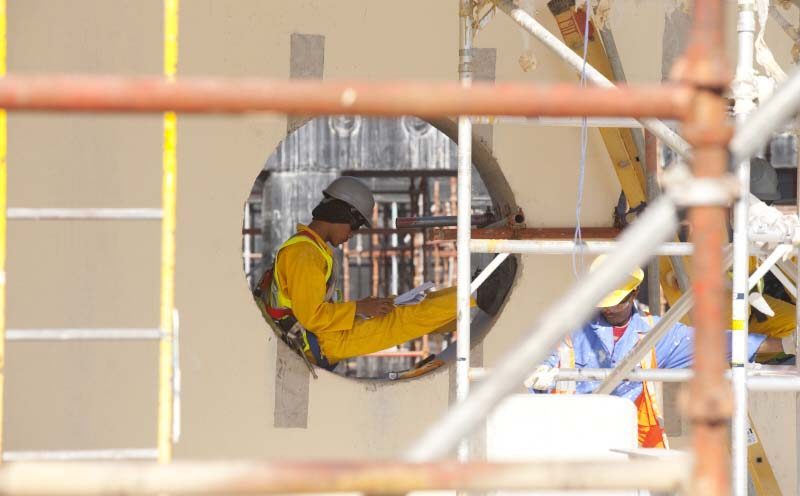
As many companies in Qatar seek to recruit more employees this year to help meet ambitious construction targets ahead of the 2022 World Cup, recruitment company Bayt.com has compiled a top 10 list of sought-after skills that new employees should have.
At the top of the list, which was recently published in Qatar Construction News, are good communication skills, with employers emphasizing that the ability to speak both Arabic and English is highly prized.
Second on the list are good interpersonal skills, followed by: leadership ability; technical skills; flexibility and multitasking; multicultural awareness; a willingness to learn; problem solving and creativity; and, at tenth, good negotiation skills.
The emphasis on people skills comes at a time when construction firms in Qatar have been urged to actively plan and manage project deliveries to avoid legal battles with their clients as World Cup deadlines loom.
Salary issues

On the flip side, companies will need to keep in mind that expanding their work forces and retaining staff will require spending money.
A study of salaries released in May by Bayt.com and market research agency YouGov found that 85 percent of Qatar respondents felt the cost of living in this country rose during 2014.
At the same time, more than a third (38 percent) said they did not get any increase in their salaries to compensate.
Of those who felt their daily costs had gone up last year, more than a quarter (27 percent) said their expenses had increased by more than 20 percent.
Higher rent, food and utility bills were the key reasons for the increased costs, respondents said.
Unhappiness with wage packages was also reflected in a survey released in April, which found that six out of 10 Qatar residents surveyed were actively looking to switch companies, with low salaries being the number one reason for searching for employment elsewhere.

According to the poll, which questioned 5,774 people from 13 countries in the region in March, Qatar employees were most likely to want to leave their current employers over low base salaries (67 percent), lack of career growth opportunities (63 percent) and lack of training opportunities (44 percent).
Although Qatar is the second-most popular Gulf country for expats to work in after the UAE, it has one of the region’s lowest retention rates, according to a recent report by online recruitment site GulfTalent.
The report, Employment and Salary Trends in the Gulf 2015, said this is likely due to Qatar’s kafala sponsorship law, which makes it difficult to change jobs, prompting many to leave the country to look for work elsewhere.
Figures from 2014 show that fewer than half (48 percent) of expats surveyed said they wanted to continue working here, compared to 88 percent of those working in the UAE and 61 percent in Kuwait. Only Oman had a worse rate than Qatar, with less than one-third (30 percent) stating they intended to remain in the country.
Thoughts?







